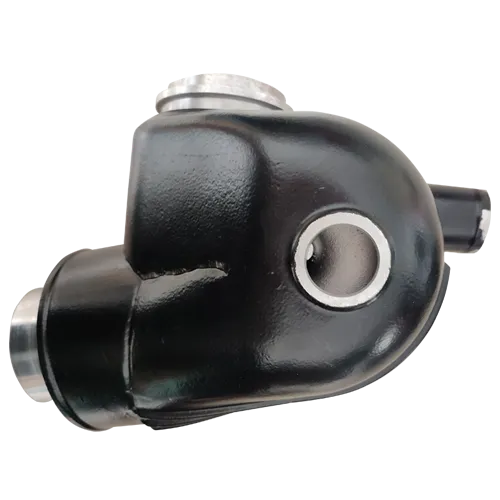Mobile:+86-311-808-126-83
Email:info@ydcastings.com
die cast aluminum material properties
Die Cast Aluminum Material Properties An Overview
Die casting is a manufacturing process that allows for the creation of complex parts with precise dimensions, making it a popular choice in various industries, including automotive, aerospace, consumer electronics, and more. The choice of material is crucial in this process, and die cast aluminum has emerged as a preferred option for many applications due to its unique properties. This article explores the material properties of die cast aluminum, its advantages, and its typical applications.
What is Die Cast Aluminum?
Die cast aluminum refers to aluminum alloys that are used in the die casting process, where molten metal is injected into a mold under high pressure. This allows for the production of intricate shapes and features with high dimensional accuracy and smooth finishes. The most common aluminum alloys used in die casting are the 3xx.x series, such as A380 and A383, known for their excellent fluidity and mechanical properties.
Mechanical Properties
One of the standout features of die cast aluminum is its mechanical properties. Die cast aluminum alloys generally exhibit high strength-to-weight ratios, making them suitable for lightweight structures without sacrificing strength. The yield strength can range from 200 to 300 MPa, and the ultimate tensile strength typically falls between 300 and 400 MPa, depending on the specific alloy used.
Moreover, aluminum die castings offer good ductility, which allows them to withstand deformation without breaking. This is particularly beneficial in applications where parts might be subjected to dynamic loads or impacts. Aluminum also has excellent fatigue resistance, making it a reliable choice for components that experience repeated stress cycles.
Thermal Properties
Die cast aluminum is well-regarded for its thermal conductivity, which is significantly higher than that of many other metals. This property is particularly advantageous in applications requiring efficient heat dissipation, such as heat sinks in electronic devices. An example is the thermal conductivity of A380 aluminum, which can be in the range of 150-200 W/mK.
die cast aluminum material properties

Additionally, aluminum has a relatively low coefficient of thermal expansion, which helps maintain dimensional stability across temperature variations. This characteristic is crucial in precision applications where tolerance levels are critical.
Corrosion Resistance
Another significant advantage of die cast aluminum is its inherent corrosion resistance. The aluminum oxide layer that forms naturally on its surface helps protect it from corrosive elements, making it suitable for outdoor applications or environments exposed to moisture. However, for enhanced protection, especially in harsh environments, protective coatings or anodizing treatments can be applied to further improve corrosion resistance.
Applications of Die Cast Aluminum
Due to its favorable properties, die cast aluminum is widely used in various industries. In the automotive sector, it is commonly found in engine components, transmission housings, and structural parts due to its lightweight nature and robustness. In consumer electronics, die cast aluminum is often used for housings and casings, providing both aesthetics and protection for delicate components.
The aerospace industry also benefits from die cast aluminum, where weight savings are critical for performance and fuel efficiency. Components such as brackets, mounts, and interior fittings are often manufactured using die cast aluminum.
Conclusion
Die cast aluminum offers a unique combination of mechanical strength, lightweight properties, thermal conductivity, and corrosion resistance, making it an ideal choice for various industrial applications. Its versatility and performance characteristics ensure that it will continue to play a vital role across multiple sectors, from automotive to aerospace. As technology advances, the development of new aluminum alloys and die casting techniques may further expand the applications and benefits of this extraordinary material.
-
Why Should You Invest in Superior Pump Castings for Your Equipment?NewsJun.09,2025
-
Unlock Performance Potential with Stainless Impellers and Aluminum End CapsNewsJun.09,2025
-
Revolutionize Your Machinery with Superior Cast Iron and Aluminum ComponentsNewsJun.09,2025
-
Revolutionize Fluid Dynamics with Premium Pump ComponentsNewsJun.09,2025
-
Optimizing Industrial Systems with Essential Valve ComponentsNewsJun.09,2025
-
Elevate Grid Efficiency with High-Precision Power CastingsNewsJun.09,2025











